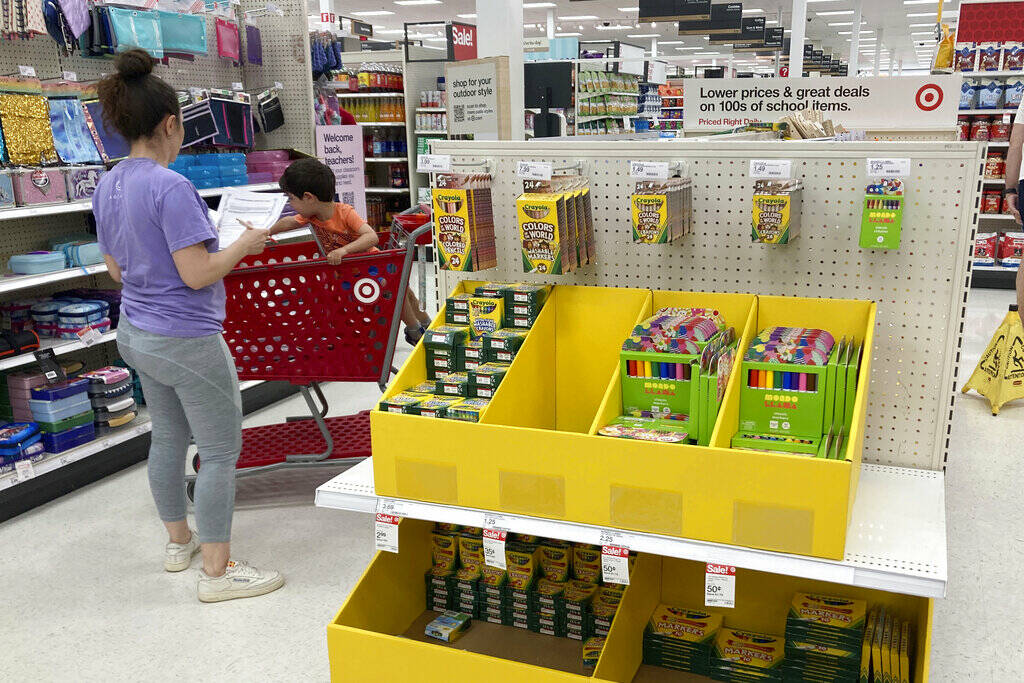Parents paying for back-to-school items will find no break from inflationary pressures on the U.S. economy.
The 15th annual Deloitte Back-to-School Survey finds the average American household with school-age kids will pay $661 per child, an 8 percent increase from last year and a whopping 27 percent above 2019.
But some of the cost can be defrayed by the Texas sales tax holiday on school supplies from Aug. 5-7.
State law exempts sales tax on qualified items — such as clothing, footwear, school supplies and backpacks — priced below $100, saving shoppers about $8 on every $100 they spend.
“Most Texans won’t hear the back-to-school bell for another month, but it’s never too early to take advantage of the opportunity to save money on everything from book bags to ballpoint pens,” Texas Comptroller Glenn Hegar said. “With inflation driving prices higher on just about everything, this sales tax holiday provides Texas families some small relief managing the costs associated with kids heading back to the classroom. As the father of three school-aged children myself, I know how these expenses can add up.”
Hegar’s office estimates the sales tax holiday will save parents $112 million in state and local sales tax during the holiday.
And every little bit is going to help.
Results from the DeLoitte survey found:
>> 54 percent of parents surveyed say they expect the economy to weaken in the next six months. It was 28 percent in 2021;
>> 33 percent say their household finances have worsened since last year (it was 22 percent in 2021);
>> 37 percent expect to pay more for back-to-school necessities this year.
The Texas tax-free school holiday weekend was instituted by the Legislature in 1999, and allows parents to buy via telephone, mail, online, custom ordering or in-store.
When an item is purchased during the tax-free weekend and parents have to wait for delivery, the item will remain tax-exempt no matter when it is finally delivered. But watch out for sales taxes, which could put the item above the threshold for being tax-free.
The same with delivery charges and shipping-and-handling fees.
“Since clothing, backpacks and school supplies have to be less than $100 to qualify, you have to look at the item’s total sales price to determine if you can buy it tax-free,” the Comptroller’s Office said in a statement. “For example, you buy a pair of jeans for $95 with a $10 delivery charge for a total price of $105. Because the jeans’ total price is more than $100, tax is due on the entire $105 price.”
The DeLoitte survey (London-based DeLoitte is the world’s largest professional services company) also found pandemic-related lockdowns and school closures had a profound impact on families with school-age kids.
It found:
>> 50 percent of parents are concerned about their child’s mental health;
>> 8 percent are home-schooling, up from 4 percent in 2021;
>> Many families had to spend more on technology products last year due to remote learning, but they expect to spend less (down 8 percent) this year;
>> More will be shopping in-store this year (49 percent versus 43 percent in 2021), while online buying is expected to be 35 percent this year versus 39 percent in 2021.
The poll by DeLoitte was conducted between May 20 and June 2 this year. It consists of a sample of 1,200 parents with respondents having at least one child attending school in grades K through 12 this fall. The margin of error is plus or minus 3 percent.





